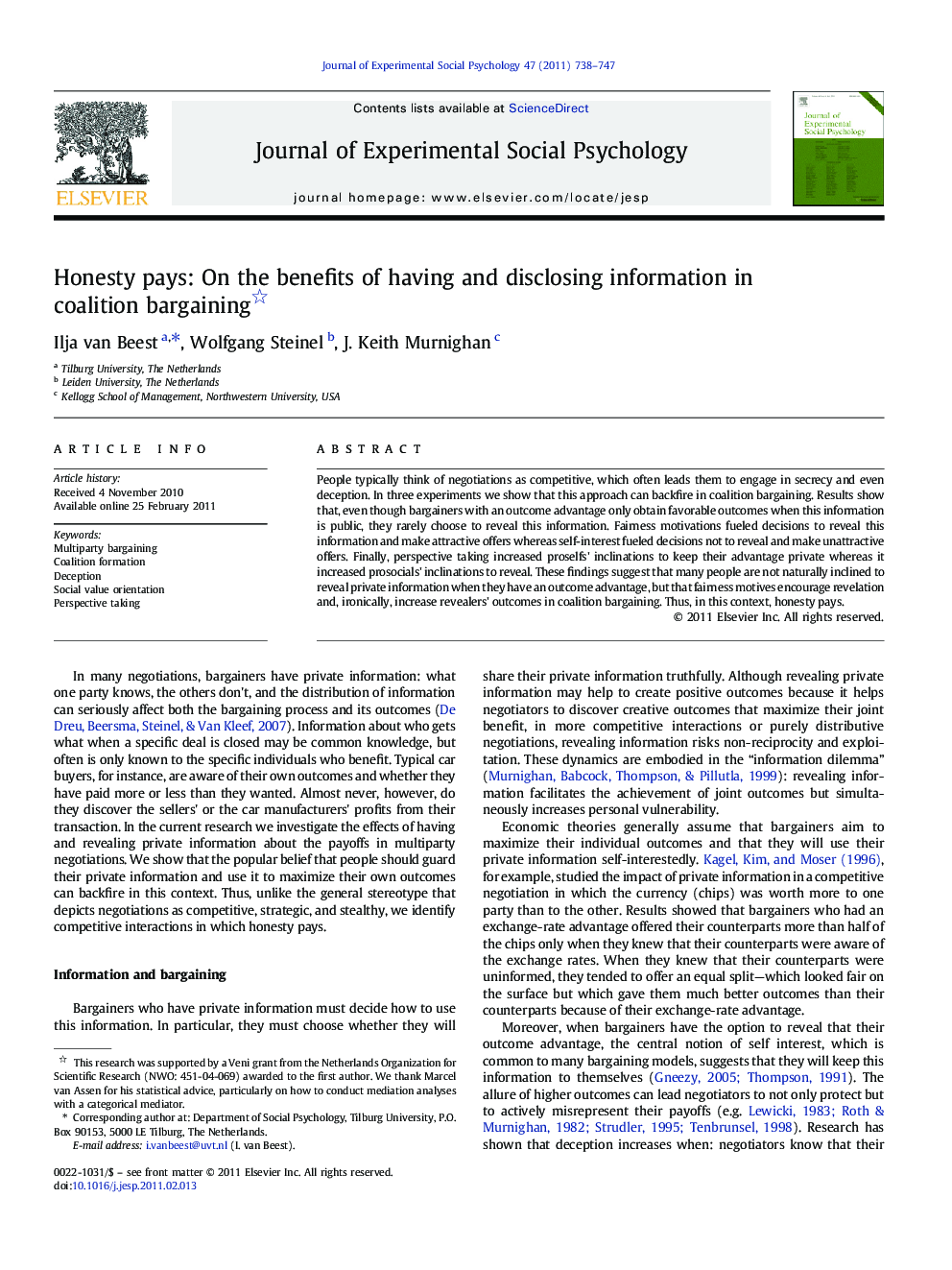| Article ID | Journal | Published Year | Pages | File Type |
|---|---|---|---|---|
| 948179 | Journal of Experimental Social Psychology | 2011 | 10 Pages |
People typically think of negotiations as competitive, which often leads them to engage in secrecy and even deception. In three experiments we show that this approach can backfire in coalition bargaining. Results show that, even though bargainers with an outcome advantage only obtain favorable outcomes when this information is public, they rarely choose to reveal this information. Fairness motivations fueled decisions to reveal this information and make attractive offers whereas self-interest fueled decisions not to reveal and make unattractive offers. Finally, perspective taking increased proselfs' inclinations to keep their advantage private whereas it increased prosocials' inclinations to reveal. These findings suggest that many people are not naturally inclined to reveal private information when they have an outcome advantage, but that fairness motives encourage revelation and, ironically, increase revealers' outcomes in coalition bargaining. Thus, in this context, honesty pays.
Research Highlights► We study how people use private information in coalition bargaining. ► We show that most people misrepresent information to potential coalition partners. ► This deception is augmented by self-interest and lowered by fairness motives. ► Ironically, those who deceive end up with less than those who do not. ► This shows that honesty pays in coalition bargaining.
